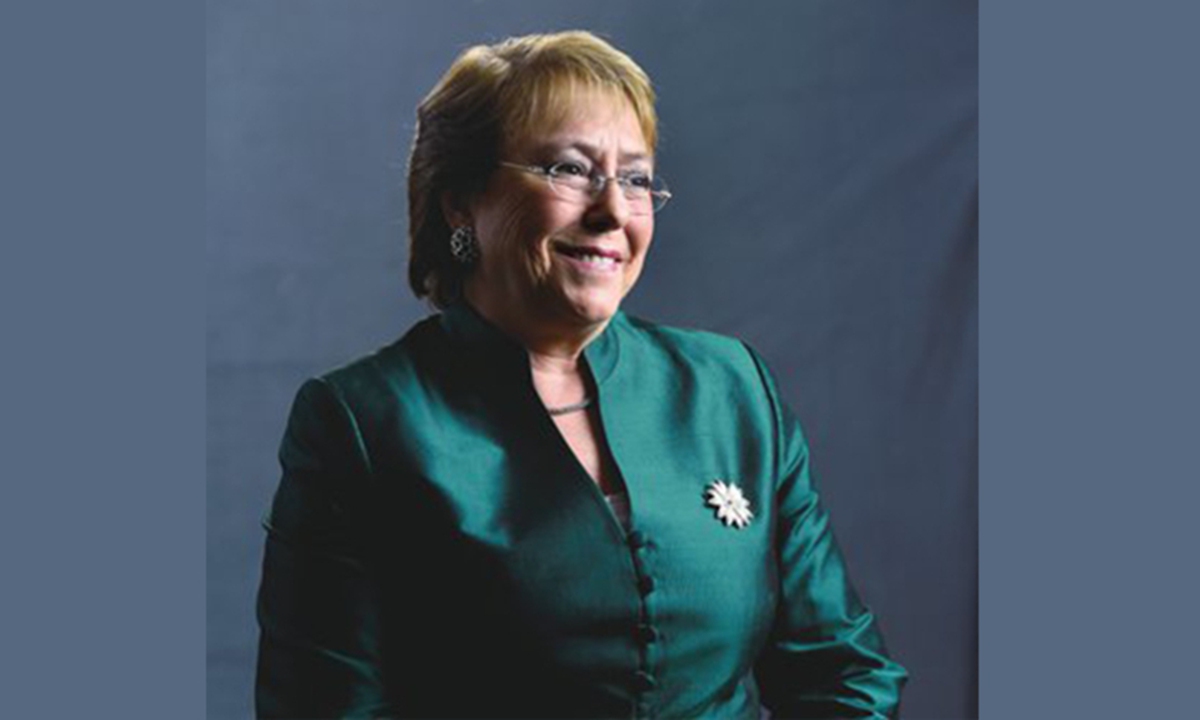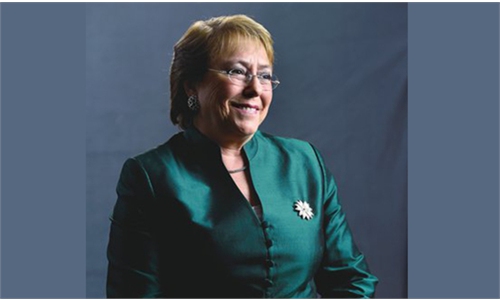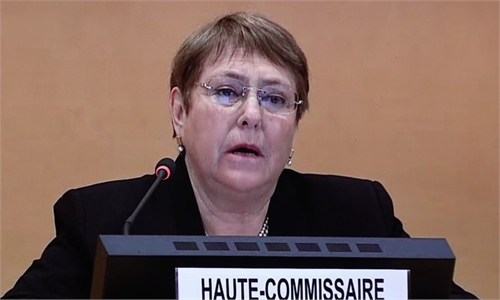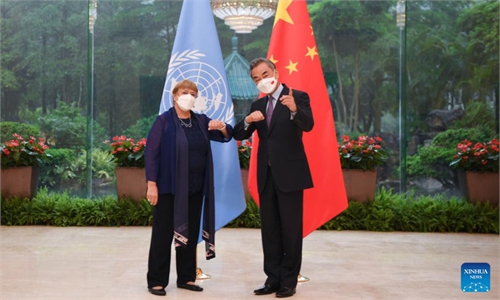Chinese envoy slams EU's false claim about 'restrictions' during UN human rights chief's visit in China

Michelle Bachelet Photo: Courtesy of Embassy of Chile in Beijing
The claims from the EU saying that UN High Commissioner for Human Rights Michelle Bachelet's visit to China underwent restrictions were untrue, said China's envoy to the EU, slamming the EU's attempt of politicizing human rights issues.
The activity arrangement during Bachelet's visit was based on her own wishes and open mutual consultation. Bachelet herself said in a press conference that she had extensive, unsupervised exchanges during her visit, a spokesperson from the Mission of China to the EU said, in response to a spokesperson from the EU claiming that Bachelet failed to secure full access to groups, individuals and "detention centers" in her visit to China's Xinjiang.
The Chinese spokesperson slammed some Western countries and anti-China forces for fabricating sensational lies on Xinjiang-related issues under the guise of human rights interest. All foreign people who have visited Xinjiang, like the High Commissioner herself, are able to draw objective and impartial conclusions on Xinjiang, the spokesperson said.
During Bachelet's visit to China from May 23 to 28, officials from departments including the Supreme People's Court, the Supreme People's Procuratorate, the Ministry of Foreign Affairs, the State Ethnic Affairs Commission, the Ministry of Public Security, the Ministry of Human Resources and Social Security and the All-China Women's Federation met and held talks with her respectively.
In Guangzhou, Bachelet visited new-style villages, elder care centers and rehabilitation centers for the disabled, an industrial area and Guangzhou's Internet Court, which reflect China's grassroots democracy, poverty-relief achievement, and judicial and environmental protection focus. Bachelet also made a speech and talked with teachers and students about human rights at the University of Guangzhou.
In Xinjiang, Bachelet was briefed on China's ethnic and religious policies and measures and the results of Xinjiang's anti-terrorism and de-radicalization strategies.
Bachelet visited the ancient old town of Kashi and went to cotton fields where she had a better understanding of the progress Xinjiang has made in protecting the traditional culture of ethnic minorities and local people's livelihood.
In her visit to an anti-terrorism and de-radicalization-themed exhibition, Bachelet learned in detail about the anti-terrorism and de-radicalization laws and policies in place in Xinjiang, their practice and effectiveness.
Bachelet also had face-to-face talks with religious figures on Muslim freedom of religion and Xinjiang's protection of their rights and freedoms according to the law. She also talked to representatives from all walks of life.
Vocational education and training centers are not the so-called re-education camps, but are schools in nature, the spokesperson from the Mission of China to the EU said.
Xinjiang suffered greatly from terrorism and religious extremism in the past. Drawing on experiences of other countries in combating terrorism, Xinjiang has set up vocational education and training centers in accordance with the law, and these institutions aim to eliminate the source of terrorism and religious extremism.
Vocational education and training centers in Xinjiang are no different from the "Desistance and Disengagement Programmes" set up in the UK or those in France. They are fully in line with the international anti-terrorism resolution-related principles such as the UN Global Counter-Terrorism Strategy and the Plan of Action to Prevent Violent Extremism, the spokesperson noted.
The citizens of a country are in the best position to say whether their country's human rights situation is good or not. China is willing to cooperate and have an open dialogue about human rights with all parties, on the premise that these exchanges are based on equality and mutual respect.
The Chinese spokesperson concluded that Xinjiang-related issues are not a human rights issue, but an issue in safeguarding China's sovereignty, security and territorial integrity. We firmly oppose any preaching or advocacy of double standards, and oppose the practice of politicizing and instrumentalizing the human rights issue. China will certainly not accept external interference in China's internal affairs under the pretext of human rights.
Global Times




